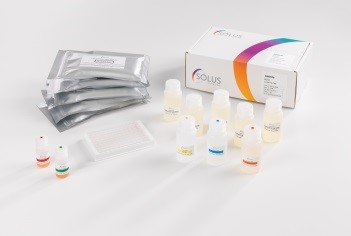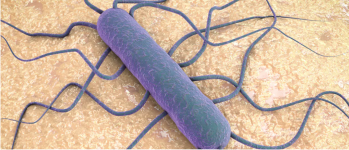THIS FEATURE IS SPONSORED BY ANATECH
South Africa is currently in the grips of a catastrophic Listeria outbreak - potentially the biggest outbreak in the world.
Listeria monocytogenes has been associated with some of the deadliest outbreaks in the world, the most recent severe outbreak being in 2011. This Listeria outbreak was traced to contaminated cantaloupes and sickened 146 persons, leading to 142 hospitalizations and 33 deaths. The contaminated cantaloupes were all from one source.
According to the Centre for Enteric Diseases, and Division of Public Health Surveillance and Response, NICD-NHLS, as of 22 November 2017, a total of 557 laboratory-confirmed Listeriosis cases have been reported from all provinces across South Africa, compared to less than 10 cases per year. More than 35 people already died during this time. Over half of these cases were reported in the last 3 months with the rate of incidence escalating exponentially.
The most severely affected are neonates, pregnant woman and immune compromised individuals often with poor prognosis for survival.
According to the NICD report, most cases in this outbreak have been exposed to a widely available, common food type/source and is likely from one facility, but the question remains, which food type and from where?

Data is essential
Finding out the origin proves to be very challenging, as the organism can be found in several environments and food sources.
Knowledge is power, and regular testing provides the data that enable food processors to make informed decisions and take action before a catastrophe strikes. The following are essential to this process:
- In fast paced food processing plants, it is critical to test sufficient samples regularly to get a good idea of potential pathogens and spoiling organisms.
- Supporting laboratories need to process these samples quickly and efficiently, enabling the production facility to make well-informed decisions without hesitation.
- As sample volumes fluctuate the lab must also have the flexibility to cope with varying demands, maximizing throughput with optimal use of resources.
Solus Scientific produces pathogen testing systems that have been specifically developed with these constraints in mind. Committed to food safety excellence, these assays bring significant productivity benefits to a food safety testing environment.
Solus Scientific ELISA System Benefits
- Highly efficient automated process
- High sample throughput can be achieved with a single machine. (Can be done manually for smaller sample throughput)
- Validation in external, independent laboratories demonstrates high levels of sensitivity and specificity
- Detection is 1 CFU per 25g of food product or swab prior to enrichment
- Results available in: 36 hours (Salmonella) 44 hours (Listeria) 18 hours (E.coli O157)
- The Solus Method is the most cost efficient and least labour intensive of all the methods
- The Solus Method allows reduction of technician processing time, leading to improved workforce productivity and profitability
- Analyse Allergens, Meat Species and Mycotoxins on the same automated, or manual ELISA platform


Each pathogen testing system comprises a specifically designed immunoassay kit, dedicated selective enrichment media and automated liquid handling. The Solus pathogen testing system is robust, reliable and validated by external independent laboratories to AFNOR according to ISO16140 and approved by the AOAC Performance Tested Method program.
For more information contact:
Hein Venter
Anatech Instruments
011 462 6776
hein@anatech.co.za

The National Institute for Communicable Diseases (NICD) is reporting a very large outbreak of Listeriosis in South Africa. Here are some facts that you should know.
...
There is currently a very large outbreak of listeriosis in South Africa. According to the National Institute of Communicable Disease (NICD), over 550 cases reported since the start of 2017. (Dec 2017)...
The National Institute for Communicable Diseases has received reports of a marked increase in the number of cases in South Africa in the last few months, mostly in Gauteng. The stats are now sitting at 190 confirmed cases across the country this year. ...
There was a great response to our recent article on Listeria. Needless to say it has been a very topical issue in the last two months. We have done a lot of research on how to eradicate the problem and have come across some great resources to share with you....
Over 80 years ago, L. monocytogenes was recognized as an animal pathogen that was widespread in nature, in soil, decaying vegetation and the bowels of many mammals. But in 1983 the first human outbreak was reported in Canada, proving that indirect transmission from animals to hum...











